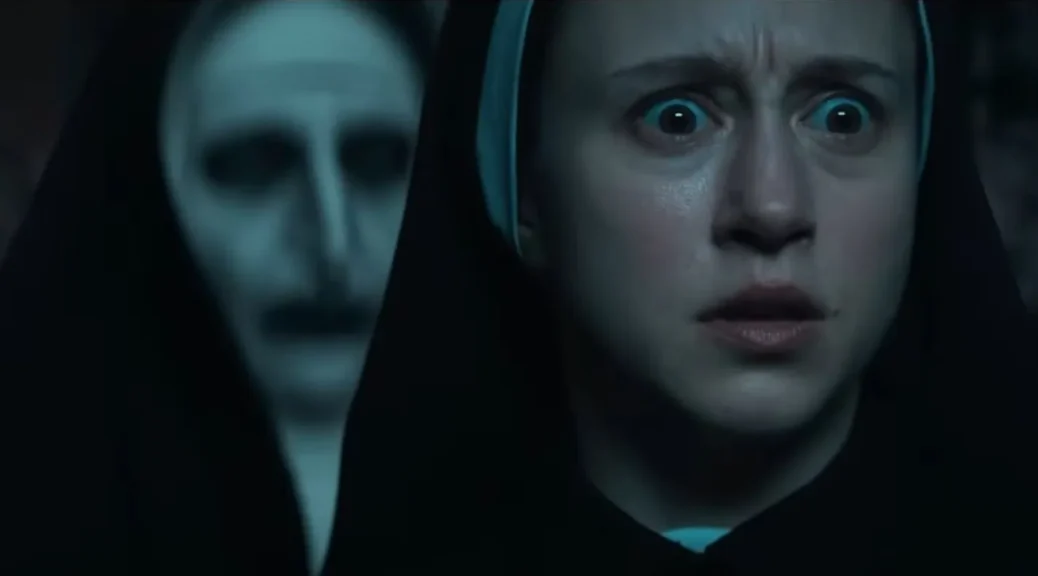The Nun II
by Hope Madden
The Nun II has at least one thing going for it. If someone could figure out what to do with her, that villain is creepy as hell.
Why? Partly because no one cuts a terrifying figure quite like Bonnie Aarons. And partly because, let’s be honest, nuns are scary. Like clowns. It’s just true.
We first ran into this Bad Habit in James Wan’s adequate 2016 sequel The Conjuring 2, but the film divided its villains up: old coot in a rocking chair (“I’m Bill Wilkins!”), the Crooked Man and – well, best not to say her name. But her screentime was very limited.
Then there was the tease in another middling sequel, Annabelle: Creation (a mediocre film, but miles better than the first in that particular franchise). She finally got her own story in 2018, with Corin Hardy’s wildly mediocre The Nun.
Can this excellent idea for a villain be put to good use, finally, with Michael Chaves’s sequel, The Nun II?
Meh.
It’s fine. It’s rated R, so that’s a start, although I’m not certain how it was deemed so problematic as to deserve the “keep the kids away” rating. There are a few creative deaths, almost elegantly macabre.
Sister Irene (Taissa Farmiga) is back on the trail of the demon nun after a series of disturbing deaths. Most of our time is spent in a monastery-turned-winery-turned-boarding school where Sister’s Irene’s old friend Maurice (Jonas Bloquet) has a job as a handyman and a crush on a teacher.
And, if memory serves, an inverted cross seared into the back of his neck. That smells like trouble (and burnt skin).
The setting is spooky, stagey and often quite atmospheric. Several of the set pieces are designed gorgeously. Bloquet continues to charm, and we not only get a nun this time but a very alarming goat-man. Nice!
The perversion of religious imagery continues to be the downfall of the series. It’s hard to take seriously, of course, because the Catholic church has a history of doing that itself. (The diocese of Syracuse claimed bankruptcy this summer due to the $100 million it owes to victims of sexual abuse.) This series would be more effective if the evil nun represented the decay within the church rather than a rogue demon weakened by an emissary of the Vatican.
Alas, Chaves settles for a bit of theoretical silliness bolstered by a nice touch of feminism, which feels delightfully heretical. So at least there’s that.



